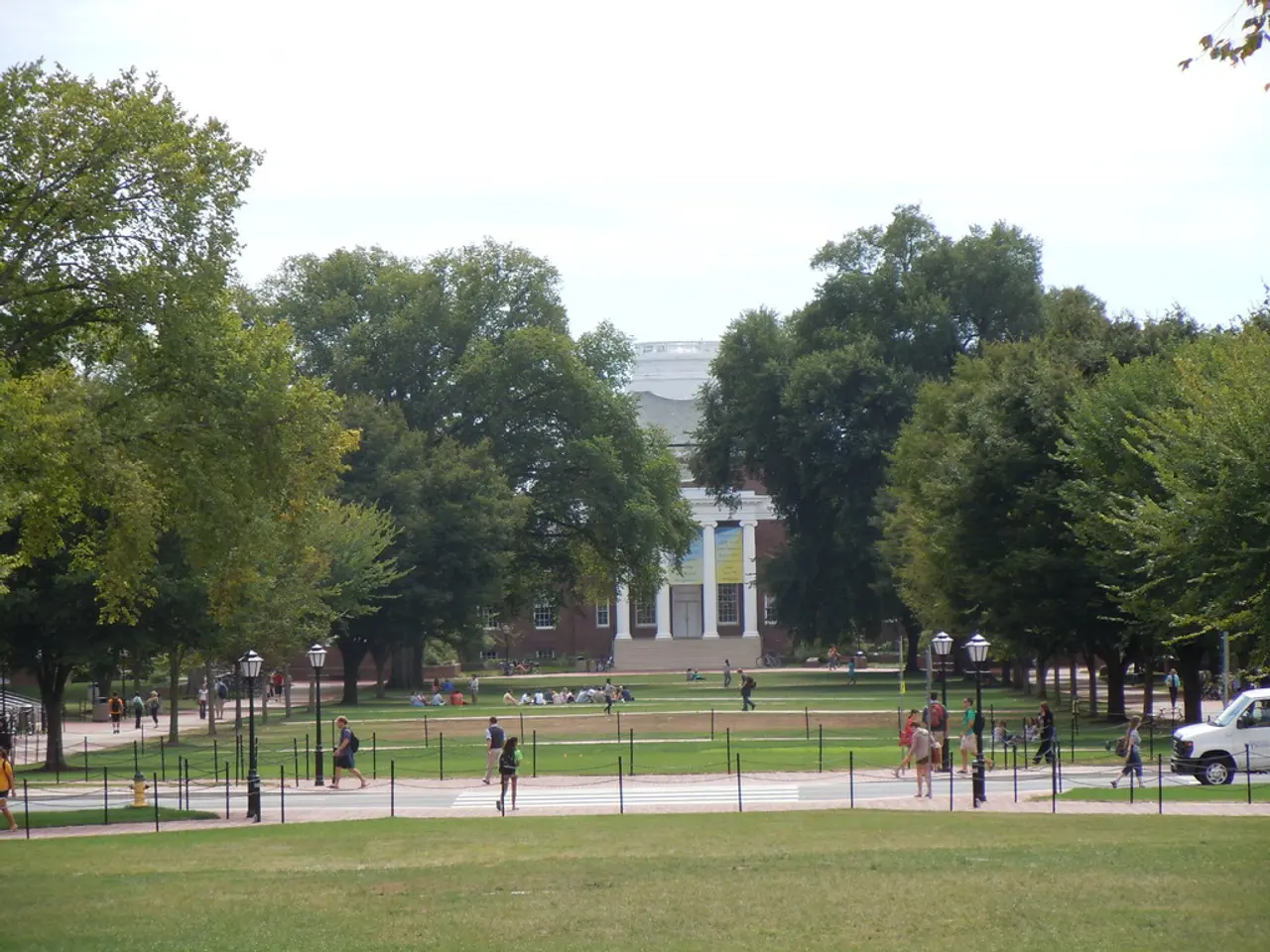Collaborative Effort: Senate members, Chamber delegates, and business leaders lock hands on joint climate action
Bremen Signs Letter of Intent for Climate Campus
In a significant move towards a climate-friendly economy, representatives from various sectors in Bremen have come together to establish the Bremen Climate Campus. The Letter of Intent, signed by Mayor Dr. Andreas Bovenschulte, Senator for Work Dr. Claudia Schilling, Senator for Education Sascha Karolin Aulepp, and other key figures from the business and political sectors, marks the beginning of this collaborative initiative.
The Climate Campus aims to produce qualified professionals in the field of climate protection and innovation, serving as a vital part of Bremen's climate protection strategy 2038. It will focus on the challenges of transformation - digitalization, decarbonization, and demographics - and will closely integrate and improve vocational and further education in the state of Bremen.
The signatories of the Letter of Intent represent a diverse range of sectors, including politics, business, and local businesses. Notable attendees included Thomas Kurzke (President of Bremen-Bremerhaven Chamber of Crafts), Andreas Meyer (Managing Director), Eduard Dubbers-Albrecht (President of Bremen and Bremerhaven Chamber of Commerce), Dr. Matthias Fonger (Chief Executive Officer), Dr. Stefan Woltering (Zech Group SE), Dr. Klaus Meier (Überseeinsel GmbH), Matthias Brandt (Board Member of Deutsche Windtechnik AG), and Michael Hehemann (Board Member of ArcelorMittal).
The overall coordination of the campus will be handled by the Senator for Work, Social Affairs, Youth, and Integration. The campus is intended to serve companies, vocational schools, further education providers, and businesses equally. Public and private resources should intersect as efficiently and effectively as possible in the development of the campus.
The development of the Climate Campus will be modular and conceptually coordinated. The University of Bremen’s Excellence Strategy, which supports cutting-edge research on critical global issues including climate and environmental sustainability, will provide the strategic framework for the campus. New infrastructure developments such as the Center for Deep-Sea Research (ZfT) in close vicinity to MARUM, a major marine research center focused on ocean sciences, are part of an active expansion phase aimed at deepening understanding of oceanic and climate-related phenomena and fostering innovative technologies.
The Bremen Climate Campus embodies a multi-institutional effort, led by the University of Bremen and MARUM, to advance climate science through interdisciplinary research, education, and innovation. The core objectives of the Bremen Climate Campus revolve around understanding and protecting the Earth's climate system, with particular emphasis on ocean processes and their role in climate regulation. This includes investigating the marine carbon cycle, natural hazards, biodiversity, and developing underwater technologies to advance climate research and protection.
Yesterday, on August 5th, these representatives gathered in the fireplace hall of the town hall to sign the Letter of Intent, reaffirming their commitment to harness existing synergies and develop potential for the "Climate Campus." This collaborative initiative is set to play a significant role in Bremen's transformation to a climate-friendly economy, producing qualified professionals and fostering innovation in the field of climate protection.
- The Bremen Climate Campus, part of Bremen's climate protection strategy 2038, will focus on producing qualified professionals in climate protection and innovation, supporting ongoing research in environmental science.
- To achieve its objectives, the Climate Campus will integrate and improve vocational and lifelong learning, collaborating extensively with various sectors like politics, business, and educational institutions.
- Continuous learning and education will be vital for the Climate Campus' success, ensuring individuals remain informed about the latest climate-change developments and are equipped with the necessary skills to address environmental challenges.




